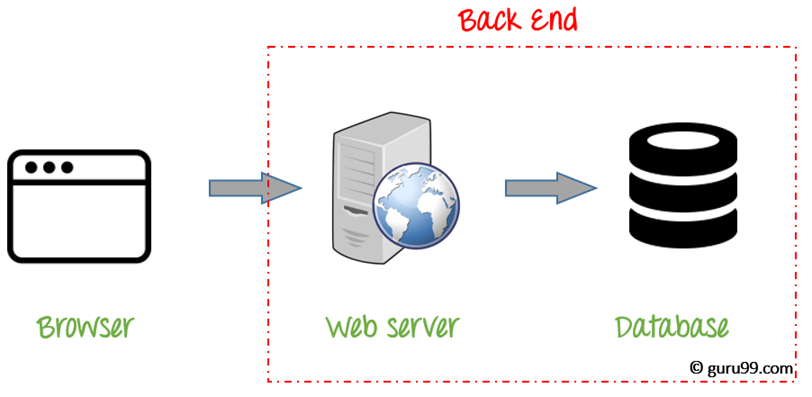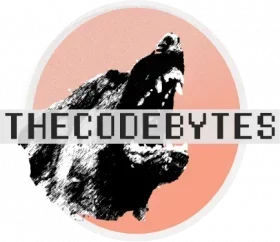If you’re wondering whether PHP is a frontend or a backend language, look no further! Today, we are going to explain everything you need to know and why this question is actually a bit confusing. As if PHP wasn’t confusing enough!
If you want the short answer, yes, PHP is certainly more of a backend language than a frontend language and this is where the bulk of PHP programming is done. However, it is not unheard of for PHP to be used on the frontend as well. In fact, this article you’re reading uses a bit of PHP on the frontend!
If you want to get into a little more detail, we are going to investigate further to see exactly where PHP is used in both frontend and backend development so it’s completely clear.
How Can PHP Be Used On The Backend?
PHP’s Strengths Are In Backend Development
As stated above, PHP is primarily a backend language. Every programming language has its strengths and weaknesses and one of PHP’s strengths is its ability as a backend language. PHP is able to manipulate data in the database (create, add, delete, modify data), store and receive cookies, access and modify server files, encrypt data and so much more.
All of these features of PHP are absolutely crucial in backend web development and are required to be considered a backend language. These operations are also usually referred to as the business logic of the application. This code is used to communicate between the end user and the database.
You can think of business logic as the programming glue that holds the database and the user interface together.

PHP Has Many Backend Frameworks
To further our point about PHP being mainly a backend language, there are also a wide array of PHP frameworks to choose from. All of these were created because of the wide use of PHP as a backend language in the past.
Here are just a few of the most popular PHP web frameworks that are used today:

- Laraval
- Symphony
- CakePHP
- Codeigniter
- Yii
PHP Is A Backend Language
As you can see, PHP is a very popular option for backend development. It is also one of the oldest and most used backend languages in the world. Although there are certainly better options in 2023!
However, that doesn’t mean that PHP has no utility on the frontend. Below we are going to explain how PHP can and is used in frontend web development.
How Can PHP Be Used On The Frontend?
You may have heard that frontend development is totally made up of HTML, CSS, and JavaScript. However, that’s not actually completely true. Although this is certainly true for most modern web development projects, it is actually possible to use a backend language like PHP on the frontend.
This was the case with webforms and C#, Java Server Faces (JSF) and Java, and most certainly with PHP!
Using PHP On The Frontend With Pure PHP
The crazy thing about PHP is that it was originally created to be the language of the web. For that reason, the creators of PHP wanted to make sure it could be used as both a backend and frontend language.
Well… kind of.
The thing with many PHP projects, including projects built with WordPress, is that the frontend HTML files are actually PHP files. Within these files, we have the ability to mix our PHP programming logic with HTML markup.
As you can see below, anything not wrapped in a <?php … ?> tag is pure HTML. While inside the tag, you can use programming logic and even print out our results as if they were HTML!
Pretty cool, right!?
<div>
Fruits in our basket: <br />
<?php foreach ($fruits as $fruit): ?>
<?php echo $fruit->name; ?>, <br />
<?php endforeach; ?>
</div>Well, not really. Somewhere along our way to modern web development practices, we decided that mixing logic and markup like this got pretty messy pretty fast. However, it is still possible to do today and pretty common if you are using PHP to create your website. Just another reason PHP fell out of popularity, despite its previous fame.
Using PHP On The Frontend With PHP Frameworks
Remember when I said that PHP had a ton of backend frameworks? Well, many of those frameworks actually allow you to write PHP code both on the frontend and the backend.
Let’s take Laraval for example. This PHP framework allows you to write frontend code either with a frontend framework of your choice or directly with PHP within the Laraval framework.
<div>
Fruits in our basket: <br />
@foreach ($fruits as $fruit)
{{ $fruit->name }} <br />
@endforeach
</div>The example above is achievable with Laraval’s view and blade templating features.
I hope you agree that it is quite a bit easier to read this than our original example in pure PHP, despite resulting in the same output. That’s the beauty of frameworks!
PHP Can Be A Frontend Language
Now you understand that writing frontend code like this is totally possible with PHP. Whether using pure PHP or a PHP framework.
In fact, some companies decide to keep the backend and frontend within the same language because it makes it easier to find developers proficient in the entire stack.
This was also a big motivation for creating Nodejs. So now you can even use JavaScript across the whole tech stack!
Wrapping Up
So, there you have it! Since the majority of PHP’s strengths are in backend development, such as database manipulation, encryption, accessing server files, etc. it’s best used in backend development.
However, there is nothing stopping you from using PHP on the frontend as well. In fact, it can be fairly common. Although using HTML, CSS, JavaScript and some frontend framework are a more common approach in 2023.
Want to know if backend or frontend development is easier? Check out this article.
Want a great reservoir of PHP content to become a master? Check out these courses.
